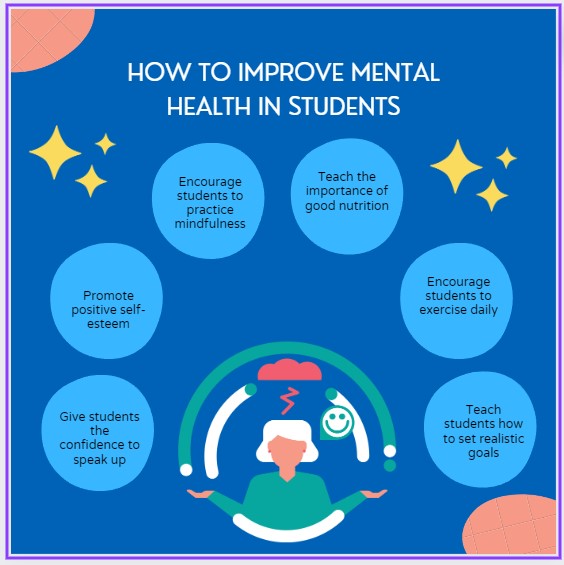
Mental health is a crucial aspect of overall well being, and it is particularly important for students. The pressures of academic life, social expectations, and the challenges of transitioning to adulthood can take a significant toll on mental health. Students who struggle with mental health issues may find it difficult to succeed academically and may struggle with relationships, making it essential to prioritize mental health in their lives. Mental health is a crucial aspect of overall well-being for students.
The Importance of Mental Health for Students
Mental health is critical for students success, both academically and personally. Students who prioritize their mental health are more likely to perform well in school, have better relationships, and enjoy a more fulfilling life. Here are some of the reasons why mental health is so important for students:
Improved academic performance: Students who prioritize their mental health are better able to manage stress, anxiety, and depression, which can lead to better academic performance.
Better relationships: Good mental health can lead to improved social connections and better relationships with peers, family, and friends.
Reduced risk of mental health disorders: Students who prioritize their mental health are less likely to develop mental health disorders such as anxiety, depression, and substance abuse.
Improved overall wellbeing: Prioritizing mental health can lead to better overall wellbeing and a more fulfilling life.
Tips for Prioritizing Mental Health as a Student
Take breaks: It is essential to take breaks from studying and other academic responsibilities. This can help reduce stress and prevent burnout.
Get enough sleep: Sleep is crucial for mental health. Aim to get seven to nine hours of sleep each night.
Exercise regularly: Exercise is an excellent way to reduce stress and boost mood. Try to get at least 30 minutes of exercise most days of the week.
Practice self-care: Self-care activities such as taking a bubble bath, reading a book, or listening to music can help reduce stress and promote relaxation.
Seek help if needed: If you are struggling with mental health issues, seek help from a mental health professional. There is no shame in asking for help.
Connect with others: Building and maintaining connections with family, friends, and peers can help improve mental health and reduce feelings of isolation.
Manage stress: Stress can have a negative impact on mental health. Practice stress management.
The pressures of academic life, social expectations, and transitioning to adulthood can take a significant toll on mental health. To prioritize mental health, students can take breaks, get enough sleep, exercise regularly, practice self-care, seek help if needed, connect with others, and manage stress. By prioritizing mental health, students can improve academic performance, better relationships, reduce the risk of mental health disorders, and improve overall well-being.
